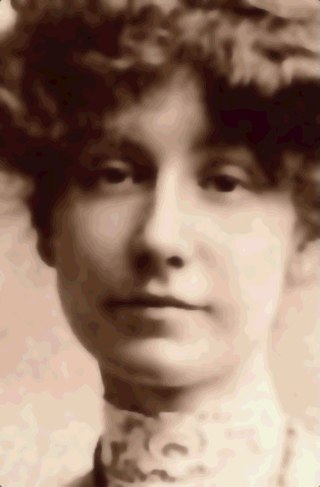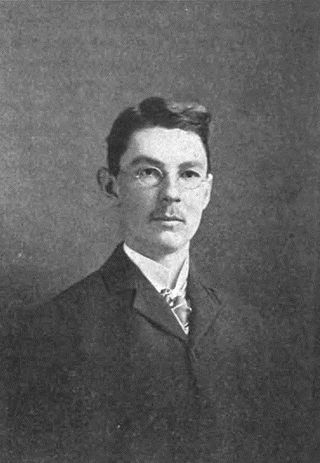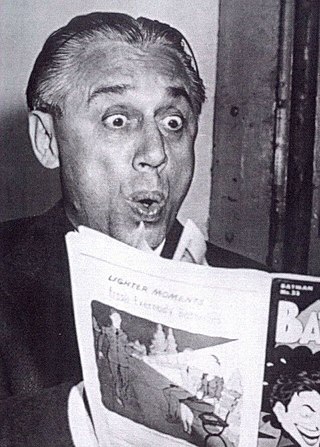Related Research Articles

The Compromise of 1877, also known as the Wormley Agreement, the Bargain of 1877, or the Corrupt Bargain, was an unwritten political deal in the United States to settle the intense dispute over the results of the 1876 presidential election, ending the filibuster of the certified results and the threat of political violence in exchange for an end to federal Reconstruction.

Stanley Jasspon Kunitz was an American poet. He was appointed Poet Laureate Consultant in Poetry to the Library of Congress twice, first in 1974 and then again in 2000.

William Jacob Cuppy was an American humorist and literary critic, known for his satirical books about nature and historical figures.

Humbert Wolfe CB CBE was an Italian-born British poet, man of letters and civil servant.
Charles Edward Montague was an English journalist, known also as a writer of novels and essays.

Frank Podmore was an English author and founding member of the Fabian Society as well as an influential member of the Society for Psychical Research. He is known for his interest in spiritualism, which he eventually developed a sceptical attitude towards, specifically the claims of mediumship which he attacked in his history of mediumship, The New Spiritualism (1910). However, he defended other spiritualist beliefs such as telepathy and ghosts.
Richard Holland or Richard de Holande was a Scottish cleric and poet, author of the Buke of the Howlat.

Margaret Gabrielle Vere Long, who used the pseudonyms Marjorie Bowen, George R. Preedy, Joseph Shearing, Robert Paye, John Winch, and Margaret Campbell or Mrs. Vere Campbell, was a British author who wrote historical romances and supernatural horror stories, as well as works of popular history and biography.

John Hall Wheelock was an American poet. He was a descendant of Eleazar Wheelock, founder of Dartmouth College. The son of William Efner Wheelock and Emily Charlotte Hall, John Hall Wheelock was born in Far Rockaway, New York, and brought up in the neighborhood now occupied by Rockefeller Center. He summered in a family home on Long Island's South Fork, which provided inspiration for much of his work.

William Crary Brownell was an American literary and art critic, born in New York City, son of Isaac W Brownell and his wife Lucia E née Brown.

Frank Thiess was a German writer.

Daniel Pierce Thompson was an American author and lawyer who served as Vermont Secretary of State and was New England's most famous novelist prior to Nathaniel Hawthorne.

Evelyn Prentice is a 1934 American crime drama film starring William Powell and Myrna Loy, and featuring Una Merkel and Rosalind Russell in her film debut. The movie was based on the 1933 novel of the same name by W. E. Woodward. Filmed between the original Thin Man and the first of its sequels, William Powell and Myrna Loy are re-teamed as another husband-and-wife team knee deep in a murder mystery.

William Stearns Davis was an American educator, historian, and author. He has been cited as one who "contributed to history as a scholarly discipline,. .. [but] was intrigued by the human side of history, which, at the time, was neglected by the discipline." After first experimenting with short stories, he turned while still a college undergraduate to longer forms to relate, from an involved (fictional) character's view, a number of critical turns of history. This faculty for humanizing, even dramatizing, history characterized Davis' later academic and professional writings as well, making them particularly suitable for secondary and higher education during the first half of the twentieth century in a field which, according to one editor, had "lost the freshness and robustness. .. the congeniality" that should mark the study of history. Both Davis' fiction and non-fiction are found in public and academic libraries today.
Benjamin Drake was a historian, editor, and writer born to Isaac Drake (1756–1832) and Elizabeth Shotwell. His elder brother was the physician and author Daniel Drake. Benjamin co-founded and for seven years was the editor of the Cincinnati Chronicle.
George William Meyer was an American Tin Pan Alley songwriter. He was born in Boston, Massachusetts, in 1884. He graduated from Roxbury High School, and began working in accountancy for Boston department stores, before moving to New York City in his mid-20s.
Lawrence Berry Washington was an American lawyer, military officer, author, Forty-niner, border ruffian, and a member of the Washington family. Washington was born on his family's Cedar Lawn plantation near Charles Town, Virginia and was the eldest of 13 children. He practiced law, then served as a second lieutenant in the Virginia Volunteers during the Mexican–American War. During his service in the war, Washington reportedly wore the sword of his great-granduncle George Washington.

Paul William Malvern was an American film producer, child actor and stuntman who produced more than 100 films.

John James Piatt was an American poet.
Grant Martin Overton was an American writer and critic.
References
- Brackman, Harold (1983). ""Biography Yanked down out of Olympus": Beard, Woodward, and Debunking Biography". Pacific Historical Review. 52 (4): 403–427. doi:10.2307/3639074. ISSN 0030-8684.
- Kunitz, Stanley; Haycraft, Howard (1942). Twentieth century authors, a biographical dictionary of modern literature. The H.W. Wilson Company.
- Leland, Marion (1929-01-06). "Wearies of Debunking Game". Brooklyn Eagle. p. 5. Retrieved 2025-01-18– via Newspapers.com.